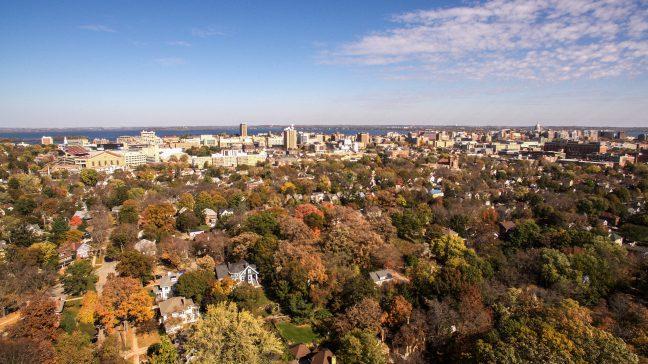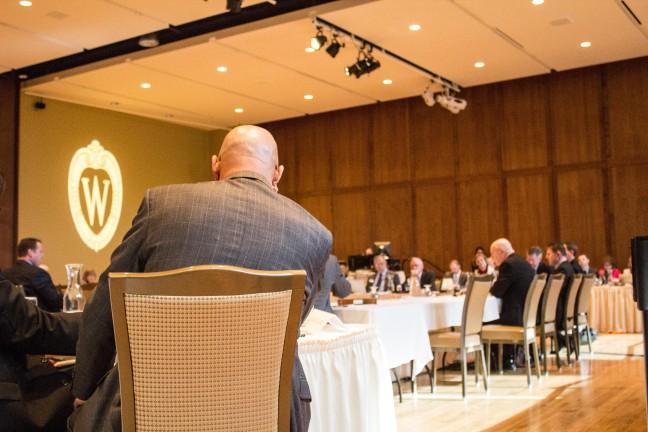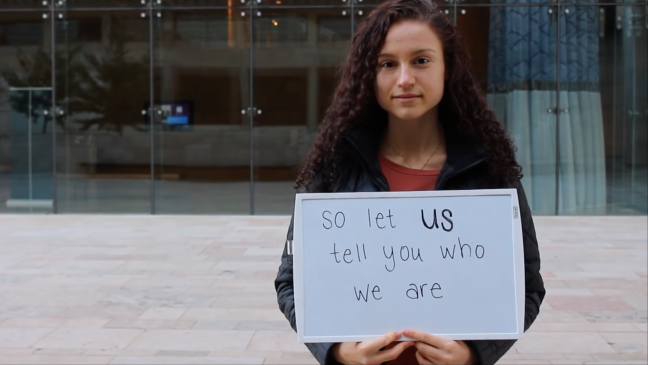Briana Reilly’s recent article “UW’s homeless students struggle to succeed,” shed welcome light on the challenges faced by needy students at University of Wisconsin. It no doubt came as a surprise to many readers that some of their peers struggle to obtain the daily necessities of food, clothing and shelter on a campus that (on its surface, anyway) appears to be the very picture of prosperity and privilege.
Reilly reported on the existing services for economically challenged students, including a newly opened food pantry and the availability of emergency loans ($500 maximum) for students, which can be used for those who find themselves sleeping on someone else’s couch or skipping meals in order to pay rent.
These efforts, though well intentioned, are identical to putting a Band-Aid on a gaping wound. The real reason students find themselves in difficult circumstances is that they are victims of the inflated and steadily increasing cost of housing in Madison.
When I attended graduate school at UW in the 1970s, the campus area was where you went to find the cheapest housing in town. Not only were rents low, they typically included the cost of utilities (I never paid an electric, gas or water bill during my entire time as a student).
Growing millennial population faces barriers to entry in Madison housing market
When it snowed, the landlord saw to it that the sidewalk was shoveled; when the grass got too high, he mowed the lawn. If the building had a parking space, it was included in the rent. Landlords who rented primarily to students offered what was called an “academic year lease,” which meant you paid only for the nine months you actually lived in the apartment. If, like most students, you left town for the summer, you were not obligated to find someone to sublet your place — it was up to the landlord to find a replacement tenant.
Talk about the good old days. As far as I can tell, the only responsibility landlords still embrace is collecting a check on the first of the month. At some point, they realized that because they cater to a captive clientele — students who need to live in close proximity to campus — they could abandon all responsibilities reasonably expected of a landlord while jacking up rents at will.
So where might one expect to look for a counterbalance to the insatiable greed of Madison’s landlords? Did someone say the university? Here’s a helpful suggestion from Associate Dean of Students Kevin Helmkamp, as reported in Reilly’s article: “The university in and of itself doesn’t have a lot of solutions there [in the areas of food and housing insecurity], so the efforts would be to connect with community resources the student could access.”
Anyone who cares to gauge the effectiveness of Madison’s “community resources” should take a stroll along State Street and count the number of homeless people (bring your calculator). Alas, the dean held out little hope UW would concern itself with this problem in the future: “It’s kind of that age-old dilemma, when you have limited resources, what’s more important — to address the issue that impacts 10,000 somewhat or impacts 10 tremendously.” Ah, “limited resources” — that all-purpose bureaucratic black hole into which any suggestion for change is immediately sucked.
And then there’s the matter of priorities. It’s only reasonable, cautions the dean, to concentrate those limited resources on projects that bestow the greatest benefits on the greatest number. Let’s apply that principle to a real-life scenario.
The final cost of the makeover of Memorial Union — now in its 88th year — is estimated at $100 million. Its purpose, as far as I can tell, is to transform what’s already a palace by any reasonable standards into a four-star resort.
Memorial Union renovations will bring temporary closures, relocations, sub shops
One might justify this extravagance by arguing that it “impacts 10,0000 students somewhat” by giving them more room to stretch their legs on the Union Terrace or offering them a couple more cuisine choices in the food court. Apparently UW administrators think so, judging by the fervor with which they endorse this boondoggle.
If you enjoy historical analogies, think of Marie Antoinette replacing the chandeliers at Versailles while her subjects clamor for bread.
Now imagine if $100 million was spent on affordable housing for UW students. Not only would it alleviate a pressing problem for the most needy, but it would act as a brake on the growing demand for private sector housing in the campus area, which, in turn, would put pressure on landlords to lower rents in order to compete in a market on which they no longer hold a monopoly. Of course, such a solution would require administrators to think outside the box (i.e. overcome their fixation on prestige projects like Memorial Union) — an exercise as unfamiliar as it is uncomfortable.
Gary L. Kriewald ([email protected]) is a senior guest auditor at UW.




















